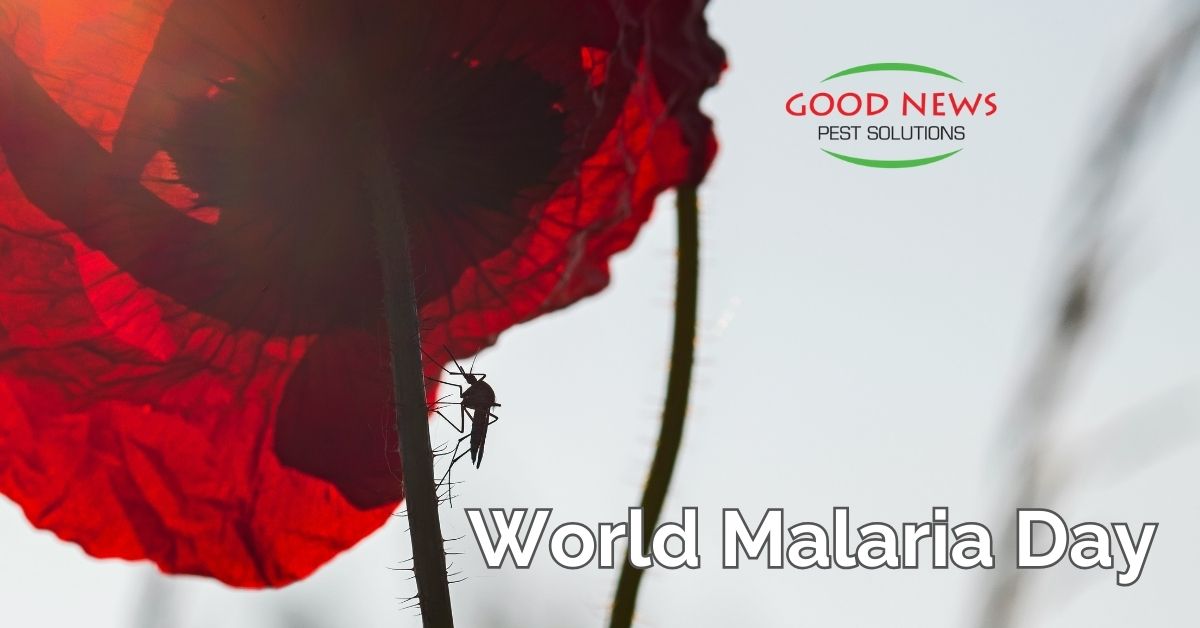
Today is World Malaria Day
In 2022, the World Health Organization (WHO) tallied up 249 million cases of malaria. Not only is that 5 million more than the previous year, it’s significantly higher than the average number maintained from 2015 through 2019.
While malaria isn’t the scourge it once was, it is far from extinct.
In 2007, the WHO established World Malaria Day, to provide for the education and understanding of malaria and to encourage intensified implementation of national malaria control strategies.
In the 20th century alone, between 150 million and 300 million lives were lost to malaria, representing approximately 2 to 5 percent of all recorded deaths. The United States has brought the disease largely under control since the 1950s, but it still ravages other nations, especially on the African continent.
World Malaria Day, observed every April 25, replaced Africa Malaria Day. The WHO governing body, although recognizing the strides the Western world had made, believed that in a truly global community, we should all share in the concern and education surrounding this deadly disease.
President George W Bush called on Americans to do their part. “Tragically, one child in Africa dies every 30 seconds from malaria, a disease that is highly treatable and preventable… we believe in the timeless truth: To whom much is given, much is required. On Malaria Awareness Day, we renew our commitment to helping combat malaria in Africa and around the world.”
Frustrating Truth
As President Bush mentioned in the above proclamation, malaria is preventable and curable. Even though it’s been mostly eradicated in the United States for more than 70 years now, we still see around 2000 cases per year. A handful of those are in Florida. We can treat them, but the majority of the globe still deals with millions of cases, and way too many of those cases – between 5-600,000 each year – end in death.
There are several medicines that have been developed to treat malaria. Some are more widely available than others. Thanks to the initiative of the WHO and the CDC, more of these medicines and treatment options are spreading to the more affected portions of the planet.
Two vaccines have been developed in the past few years, due partly to advances driven by the Covid vaccines. The WHO is working with governments and doctors, especially in developing nations, to get these effective preventative measures to the millions of kids at risk.
Spreading the Disease
Malaria isn’t contagious. You cannot be infected by another person with the disease. While some cases of malaria arise from blood transfusions and infected needles, malaria is primarily spread through the bites of infected mosquitoes. The pregnant female mosquito gets infected while biting one person or animal. When she goes to bite someone else, the disease is transmitted.
Fever, headache, and chills are the first, mild symptoms of malaria infection. They start around 10-15 days after the mosquito bites you. If you have a strong immune system or have been exposed to malaria before, this may be as bad as it gets. If you suspect you may have malaria at all, get tested.
There is also more than one strain of malaria. The worst kind can cause severe issues, including extreme tiredness and fatigue, multiple convulsions, difficulty breathing, dark or bloody urine, yellowing of the eyes and skin and abnormal bleeding. And, sadly, one rare form of malaria can kill within 24 hours.
Travelers are the most often affected – which is why some countries require a malaria shot to enter. Infants and children under 5, pregnant women, and those with existing bloodborne illnesses are most at risk.
Nipping It in the Bud
The most effective preventative measure against malaria is making sure you are not bitten by an infected mosquito. To that end, several non-profits work to supply mosquito nets and repellant sprays to people in need.
Unfortunately, like many other insects, Anopheles mosquitoes – the ones most likely to spread malaria – are rapidly developing a resistance to insecticides and are even adjusting their behavior, biting earlier in the day. This is seriously hampering the progress of controlling the disease across the globe.
If you spend any time camping this summer, mosquito netting is a good idea. Wearing protective clothing – long sleeve shirts and pants, is helpful for prevention as well.
Other potential dangers aside, as chemical insecticides become less effective on mosquitoes, there is no better time to look at alternatives. Our exclusive No Bite Zones Mosquito Protection Program not only keeps mosquitoes from biting you – it protects them and the environment. Exposure to our MosquitoPAQs literally turns the momma mosquitoes and their soon to be laid eggs into vegans.
Instead of biting us or our pets or livestock, the mosquitoes process the proteins they need through plants. Voilà! Your backyard is safe for all your summer activities. We can even deliver the solution during your regular periodic visits for Go Green Perimeter Plus or Term Assure 365 treatments. For more details, just give us a call!
« Back to Blog
Proudly Serving
Sun City Center, Ruskin, Palmetto, Parrish, Ellenton, Bradenton, Anna Maria, Holmes Beach, Bradenton Beach, Longboat Key, Lakewood Ranch, University Park, Myakka City, Sarasota, Siesta Key, Osprey, Nokomis, Casey Key, Venice, Englewood, North Port, Port Charlotte, Punta Gorda, Arcadia
Things You Can Do
Pay Your Bill Online
Leave Us a Review
Request a Free* Termite Inspection
Stop Mosquito Bites
Get Rid of Rodents
Get a Termite Damage Warranty
Get Pest Control for Your Attic
Get Pest Control for Your Business Request Prayer
Corporate Address
1080 Enterprise Court, Ste A
North Venice, FL 34275
Call Now: (941) 412-9610
Text: (941) 412-9610
Fax: (941) 412-0080
